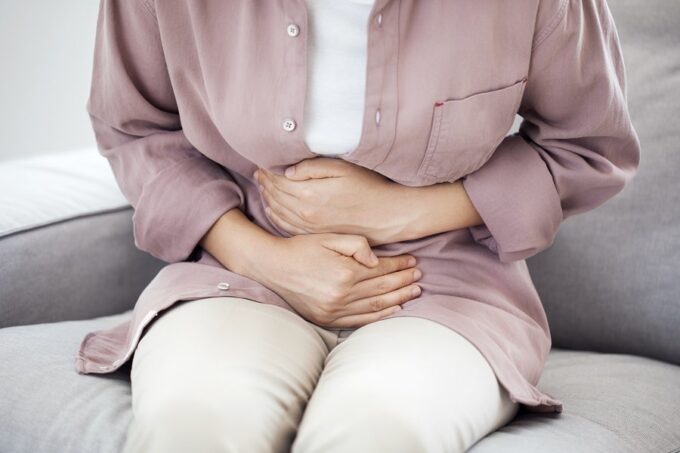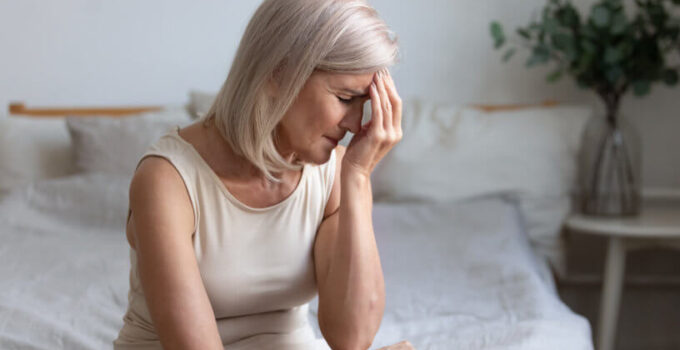The decrease in estrogen production is the main sign of menopause. Estrogen is a hormone produced by the ovaries and is responsible for controlling the female reproductive system, bones, cardiovascular system, and brain. Reducing this hormone can increase the risk of developing some diseases such as osteoporosis, depression, breast cysts, uterine polyps, or even cancer.
Taking hormone replacement therapy naturally, or with the use of medication, is an option to alleviate the symptoms caused by menopause, but it is not always indicated or sufficient to avoid the risk of these diseases. Therefore, you should follow up with a gynecologist, at least once a year, to know your health status, prevent “the possible diseases” and avoid complications.
We’re going to talk about 7 common diseases during menopause:
1. Breast cancer or cyst formation

Breast cysts are common in women up to age 50 but can happen in post-menopausal women, especially when taking hormone replacement therapy. The main symptom of a breast cyst is the appearance of a lump, which can be seen on breast self-examination, ultrasound, or mammography.
In addition, there is a higher risk of developing breast cancer in women with late menopause, that is, after the age of 55. This is because the more menstrual cycles a woman has throughout her life, the greater the effect of estrogen on the uterus and breasts, which can cause malignant changes in the cells. Therefore, the more menstrual periods a woman has, the longer she is exposed to estrogen.
What to do: you should do a self-exam of the breasts every month and observe if you have any lumps, deformation, redness, fluid coming out of the nipple, or pain in the breast and seek medical help as soon as possible to check if it is a cyst or cancer. If a cyst is diagnosed, the doctor may perform a fine-needle aspiration. In the case of breast cancer, treatment may include surgery, radiation therapy, chemotherapy, or immunotherapy.
2. Ovarian cysts
Ovarian cysts are very common due to hormonal changes in menopause, but they do not always cause symptoms and can be detected during the routine gynecological examination and imaging tests such as ultrasound. However, some symptoms may occur such as pain in the abdomen, frequent feeling of a bloated belly, back pain, or nausea and vomiting.
When these cysts appear at menopause, they are difficult to remove and in most cases, surgery is required.
What to do: Seeking medical help is highly recommended once some symptoms are discovered. Not only that, consultation with a gynecologist should be done regularly to detect changes that may have occurred in the ovaries.
3. Endometrial cancer
Endometrial cancer can occur at menopause, particularly late menopause, and is usually detected at an early stage because symptoms such as vaginal bleeding or pelvic pain are the first signs of this type of cancer.
What to do: You should see a gynecologist for tests that include a pelvic exam, ultrasound, hysteroscopy, or biopsy. If endometrial cancer is diagnosed at an early stage, surgical removal of the uterus usually cures cancer. In advanced cases, the treatment is surgical and the doctor may also indicate radiotherapy, chemotherapy, or hormone therapy.
4. Uterine polyps

Uterine polyps, also called endometrial polyps, may not cause symptoms, but in some cases, there may be bleeding after intercourse and pelvic pain. They are more common in women who are on hormone replacement therapy and in those who have not had children. Its treatment can be done with drugs or surgery and it rarely turns into cancer. Another type of uterine polyp is the endocervical polyp, which appears on the cervix, and may not cause any symptoms or cause bleeding after intimate contact. They are diagnosed through the Pap smear and can be removed with local anesthesia at the clinic or hospital.
What to do: The presence of endometrial or endocervical polyps should be detected early. Once they are detected, having a Pap smear is recommended and surgery should be performed as soon as possible. Of course, after consulting a gynecologist.
5. Uterine prolapsed
Uterine prolapse is more common in women who have had more than one vaginal delivery and causes symptoms such as the descent of the uterus, urinary incontinence, and pain on intimate contact. At menopause, greater weakness of the pelvic muscles may occur due to decreased estrogen production, causing uterine prolapse.
What to do: Surgical treatment must be performed to reposition the uterus or even to “remove it”.
6. Osteoporosis
Bone loss is a normal condition for the elderly but in women, hormonal changes can accelerate it and in many cases, women under the age of 45 can experience bone loss. Bone loss is what accelerates osteoporosis and ultimately increases the risk of fractures.
What to do: Some medical actions must be done including hormone replacement therapy and the use of medications such as ibandronate or alendronate, for example. In addition, foods that help strengthen bones can be included in the diet to aid in medical treatment.
7. Genitourinary syndrome
The genitourinary syndrome is characterized by vaginal dryness, irritation, flaccidity of the mucosa, loss of sexual desire, pain during intimate contact, or urinary incontinence that can cause leakage of urine on clothing. This syndrome is common in menopause due to decreased estrogen production that can make the walls of the vagina thinner, drier, and less elastic. In addition, an imbalance of the vaginal flora can also occur, increasing the risk of urinary and vaginal infections.
What to do: The gynecologist may recommend using vaginal estrogen in the form of a cream, gel, or pills or non-hormonal lubricants in the form of creams or vaginal ova to reduce symptoms and discomfort.
From the points above we can know that menopause can have a bad effect on women’s overall health. If you want to get more information about hormone therapy commonly used by menopausal women, we highly recommend you to visit bywinona.com. We hope this post was informative. Have a nice day and be positive!







